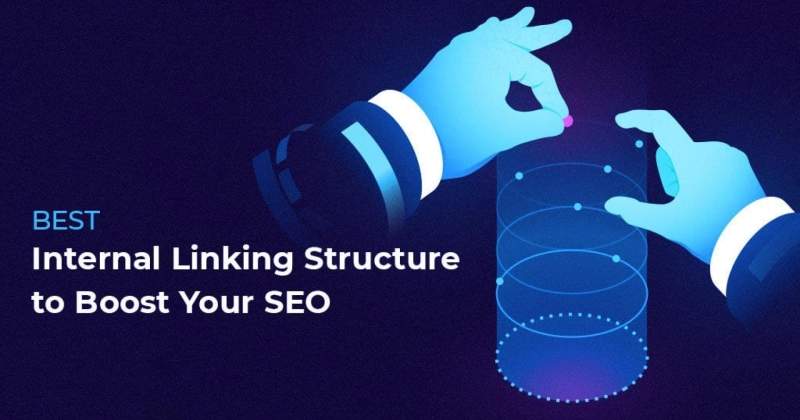When creating online content, linking to other pages on your website is one of the recommended strategies to increase page performance. As a result, a network of interconnected pages is created, and search engines are more likely to give your site a higher ranking. Although generating internal links is a simple operation, not every link will yield the intended outcomes. There is a method of linking pages that allows you to get the benefits while avoiding issues. Internal linking was explored in this article as a way to improve page performance by a digital marketing agency Position Punisher LLC. Search engine crawling is maybe the most compelling argument to focus on internal linking on your page. When search engines are looking for pages to rank, they will visit a page and scan whatever text they can discover. It will look for links to other pages with relevant content throughout the process. When it's through browsing the current page, it'll click on the other links to see what they're about. The search engine can adjust the rank of the current page and any pages linked to it based on what it discovers. You want search engines to identify links to relevant material in the proper locations when they crawl your website (that is when they search through your pages). This results in a network of pages with comparable content, which search engines value highly. Readers will value it as well because they will be able to obtain more information about the issue they are investigating without having to conduct separate searches. Place internal links strategically throughout your content to increase your website's SEO ranking. Make sure your links are relevant to the topic at hand, as well as links to articles that provide information on the subject. No matter how useful the links are, don't overcrowd your pages with them. Too many links indicate that search engines should be concentrating their efforts on other pages rather than the one they are currently viewing. The content on the page where the link is placed must be related to the content on the page where the link is placed. Creating links out of your keywords is one approach to ensure that this happens. When you choose keywords, you're focusing on some of the most relevant aspects of your content and linking to publications regarding the keywords. This is a popular way of delivering more information about a topic without having to describe each aspect in detail each time it arises. This is how many articles on the same topic are published for advanced readers while still being useful to less experienced readers. Unless you plan ahead of time, determining what you'll link and which sites need to be connected can be challenging. This is a regular occurrence with websites or when businesses attempt to redesign their existing websites. The idea is to ensure that the links you include build a coherent and relevant chain of topical material that assists readers in better understanding the subject. You can improve the quality of your link structure by mapping your links throughout your website. There are many ways to do this, but one of the most common is called a link tree. It starts at the homepage and creates a chain of links through the pages that resembles the branches of a tree. By setting up your pages this way, you can easily track which pages are connected and in what order. That way, you can make sure that follow a relevant path through your content. This will also help improve the quality of the information the search engines follow when they crawl through your website. Authority pages are pages on your website that thoroughly explain a topic and establish you as an expert on the topic. These pages tend to rank higher in search engines because they can be used by readers to learn more about the topic that they are searching for. While every page cannot be an authority page, you can link to them to help other pages improve their search engine ranking. In many cases, these pages act as reference pages for important information on specific topics. Rather than re-explaining that information every time it comes up on your website, you can link to the authority page for a deeper and more thorough explanation. Search engines see pages that are linked to authority pages as more important. Chart a path through your website that brings other pages back to your authority pages to help raise the SEO for the entire website. Getting the most out of your link pages requires consistent work on keeping your website updated and connecting new content to your existing content. This can be a difficult process, but you can get help from an agency that specializes in content development and SEO. Search Engine Crawling
Link to Keyword Content
Map Your Links
Link to Authority Pages
Work with an Agency for Help
At Position Punisher LLC is a top-rated SEO company in Arizona we have teams that specialize in raising website SEO through content development and link management. Call us at (602) 799-4253 to discuss how we can help you improve the links on your website.
Internal Linking to Boost SEO Rankings in 2021


